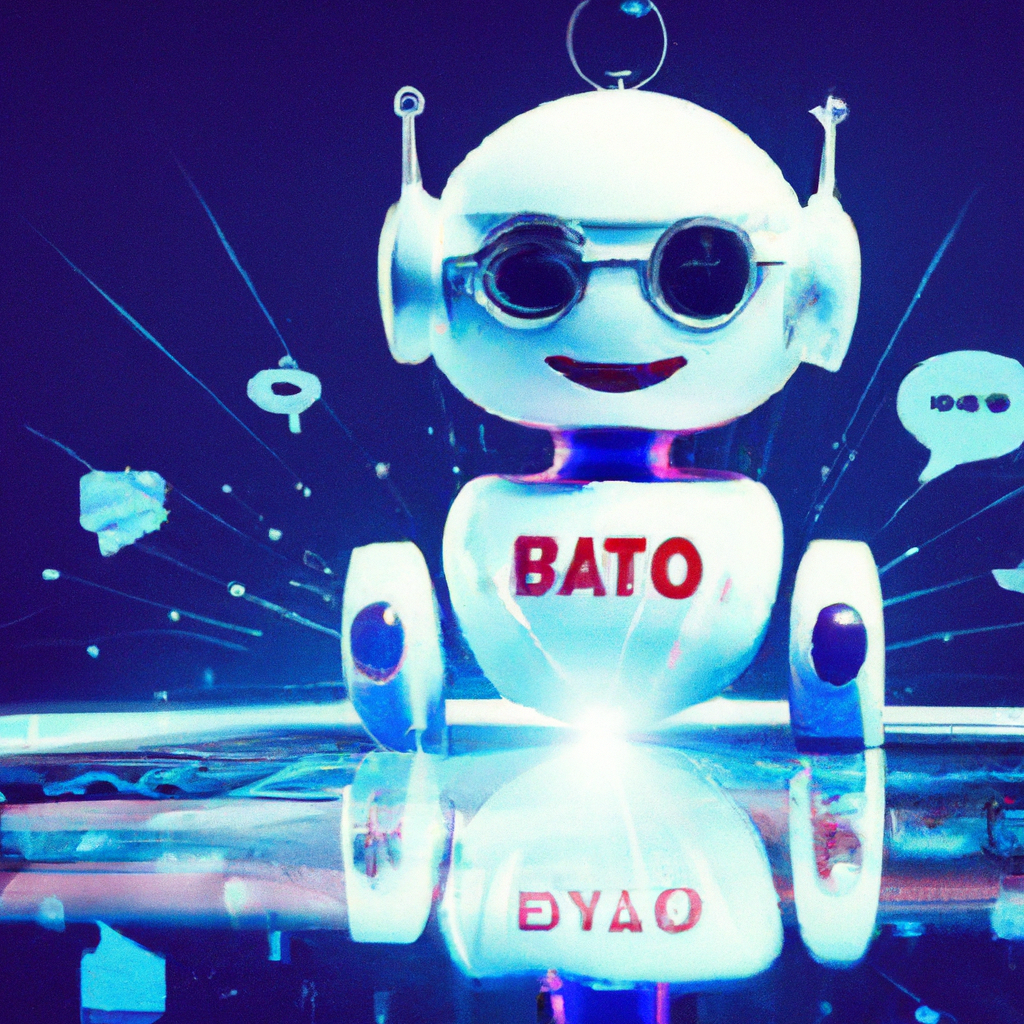Imagine a world where your home is not just a place to live, but a smart sanctuary that understands your needs and takes care of your every request. In this interconnected world, chatbots play a vital role as the friendly and intelligent interface that bridges the gap between you and your virtual assistant. Whether it’s managing your schedule, controlling your smart devices, or providing personalized recommendations, chatbots are becoming indispensable in the realm of virtual assistants and smart homes. Join us as we explore the fascinating role of chatbots in revolutionizing the way we interact with our homes and the technology that surrounds us.

Role of Chatbots in Virtual Assistants
Definition of Chatbots
Chatbots are computer programs designed to simulate human conversation. They use artificial intelligence and natural language processing to understand and respond to user queries in a conversational manner. Chatbots are often integrated into virtual assistants, which are software applications that help users perform tasks or provide information through voice commands or text input.
Integration of Chatbots into Virtual Assistants
Chatbots play a crucial role in enhancing the capabilities of virtual assistants. By integrating chatbot technology, virtual assistants can offer more sophisticated responses and a more personalized user experience. Chatbots can handle complex inquiries, provide data analysis, and perform tasks on behalf of the user. They can also learn from user interactions to improve their future responses and recommendations.
Improved User Experience
One of the primary benefits of using chatbots in virtual assistants is the improved user experience. Chatbots can understand user intent and provide relevant and accurate information in a conversational manner. This creates a more natural and intuitive interaction for users, making the virtual assistant feel more like a helpful conversation partner rather than a robotic interface. With chatbots, users can get their questions answered or tasks completed more efficiently and effectively.
24/7 Availability and Instant Response
Chatbots in virtual assistants enable round-the-clock availability and instant responses. Unlike human assistants who have limited working hours, chatbots can operate 24/7 without fatigue or the need for breaks. This provides users with anytime access to information and assistance. Chatbots can quickly respond to user queries, eliminating the need for users to wait for a human assistant’s availability. This instant response capability enhances user satisfaction and productivity.
Natural Language Processing
The integration of chatbots into virtual assistants leverages natural language processing (NLP) technology. NLP enables chatbots to understand and interpret human language in a way that mimics human understanding. This technology ensures that chatbots can comprehend user queries, regardless of their phrasing or language complexity. By accurately understanding user intent, chatbots can provide more accurate and relevant responses, enhancing the overall user experience.
Personalized Assistance
Chatbots in virtual assistants can provide personalized assistance based on user preferences, behavior, and historical data. By analyzing user interactions and data, chatbots can offer tailored recommendations, suggestions, and information. This personalization feature ensures that users receive individualized assistance, saving them time and effort in finding the information or performing tasks they need. The ability to remember user preferences also adds a sense of familiarity and comfort in user interactions.
Data Collection and Analysis
Chatbots in virtual assistants facilitate data collection and analysis. Through user interactions, chatbots can gather valuable information about user behavior, preferences, and needs. This data can then be analyzed to gain insights into user patterns and preferences, enabling businesses to refine their offerings and provide better services. Additionally, chatbots can assist in data analysis tasks by extracting relevant information, performing calculations, and generating reports or summaries.
Multilingual Support
With globalization, multilingual support has become increasingly important. Chatbots in virtual assistants can bridge the language gap by supporting multiple languages. By leveraging NLP and language processing capabilities, chatbots can understand and respond to user queries in different languages. This enables businesses to provide customer support or assistance to users worldwide, regardless of their language preferences. Multilingual chatbot support enhances user satisfaction and expands the reach of virtual assistants.
Reduced Human Error
Human error is an inherent risk in any task involving manual intervention. Chatbots in virtual assistants help minimize human error by automating repetitive or mundane tasks. By relying on predefined rules and algorithms, chatbots ensure consistent and accurate information delivery. They can also make calculations or process data without the risk of human error. This reliability in operations enhances user trust and confidence in virtual assistants’ capabilities.
Cost Savings
Integrating chatbots into virtual assistants can lead to significant cost savings for businesses. Chatbots can handle a high volume of user inquiries without the need for additional support staff. This reduces the need for hiring and training additional human assistants. Furthermore, chatbots operate 24/7, eliminating the need for shift-based human support teams. With chatbots, businesses can provide efficient and uninterrupted assistance at a fraction of the cost of maintaining a large human workforce.

Role of Chatbots in Smart Homes
Definition of Smart Homes
Smart homes are residences equipped with advanced automation systems and interconnected devices that can be remotely controlled and monitored. These devices, often referred to as the Internet of Things (IoT) devices, encompass various aspects of home management, including lighting, security, entertainment, temperature control, and more. The aim of a smart home is to enhance convenience, energy efficiency, and security while providing comfort and customization for homeowners.
Integration of Chatbots into Smart Homes
Chatbots play a crucial role in enabling voice control and automation in smart homes. By integrating chatbot technology with smart home systems, homeowners can control and manage various IoT devices through voice commands or text input. Chatbots serve as the interface between users and their smart home devices, allowing for seamless and intuitive control.
Voice-Activated Control
One of the key advantages of using chatbots in smart homes is voice-activated control. Chatbots enable homeowners to control and interact with their smart home devices using voice commands. This hands-free operation adds convenience and accessibility, as users can perform tasks or control their devices simply by speaking. Whether it’s adjusting the thermostat, turning on lights, or playing music, voice-activated control powered by chatbots makes smart homes more user-friendly and intuitive.
Home Automation and Convenience
Chatbots in smart homes enable automation and enhance convenience. By integrating chatbot technology with smart home systems, homeowners can automate routine tasks and create personalized routines. For example, a chatbot can be programmed to adjust the temperature, turn on the lights, and play soft music when a homeowner says, “Goodnight.” This level of automation simplifies daily routines and adds convenience to homeowners’ lives.
Energy Efficiency
Smart homes aim to enhance energy efficiency, and chatbots contribute to this goal. By integrating chatbots with energy management systems, homeowners can monitor and control energy usage more effectively. Chatbots can provide real-time energy consumption data, offer suggestions for energy-saving practices, or adjust device settings to optimize energy usage. With chatbots’ assistance, homeowners can reduce their carbon footprint and save on energy costs.
Security and Surveillance
Chatbots play a significant role in enhancing security and surveillance in smart homes. By integrating chatbots with security systems, homeowners can monitor and control their home security remotely. Chatbots can send notifications about suspicious activities, allow homeowners to view live feeds from security cameras, or even control door locks and alarm systems. This added layer of security gives homeowners peace of mind, knowing that their homes are protected and under their control.
Remote Access and Monitoring
Chatbots enable homeowners to remotely access and monitor their smart homes. Through a chatbot interface, homeowners can check the status of devices, receive updates, and control their home systems from anywhere with an internet connection. This remote access feature is particularly useful when homeowners are away or want to ensure their home is secure while on vacation. Chatbots provide real-time information and control, making it easier for homeowners to manage their smart homes remotely.
Smart Home Maintenance
Chatbots assist homeowners in smart home maintenance tasks. By integrating chatbots with maintenance systems, homeowners can receive reminders for device maintenance or schedule service appointments. Chatbots can provide troubleshooting assistance, guide homeowners through simple repairs, or even connect them with professional technicians when necessary. This proactive approach to smart home maintenance ensures optimal performance and longevity of devices.
Personalization and Customization
Chatbots in smart homes contribute to personalization and customization options. By understanding user preferences and usage patterns, chatbots can offer personalized recommendations and suggestions. For example, a chatbot can suggest energy-saving settings based on a homeowner’s usage history or recommend entertainment options tailored to individual preferences. This level of personalization enhances the overall smart home experience, making it more tailored to individual needs and preferences.
Integration with Other Devices and Services
Chatbots facilitate seamless integration with other devices and services in smart homes. By acting as a central hub, chatbots can connect and control various IoT devices, regardless of their brand or manufacturer. This interoperability enhances the functionality and versatility of smart homes, enabling users to create personalized ecosystems. For example, a chatbot can integrate with a smart speaker, a smart lighting system, and a smart thermostat to provide unified control over these devices.
In conclusion, chatbots play a significant role in enhancing the capabilities and functionalities of virtual assistants and smart homes. By leveraging artificial intelligence, natural language processing, and automation, chatbots provide improved user experiences, personalized assistance, and cost savings. In virtual assistants, chatbots create more natural and effortless interactions, while in smart homes, they enable voice-controlled automation, energy efficiency, and enhanced security. As technology continues to advance, chatbots are expected to play an increasingly vital role in shaping the future of virtual assistants and smart homes.

